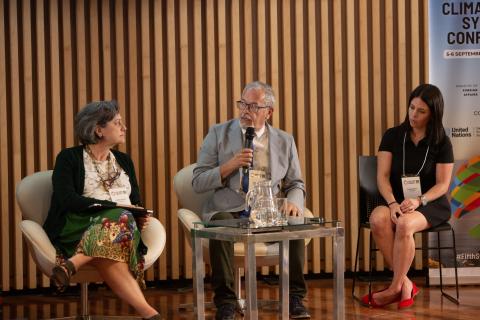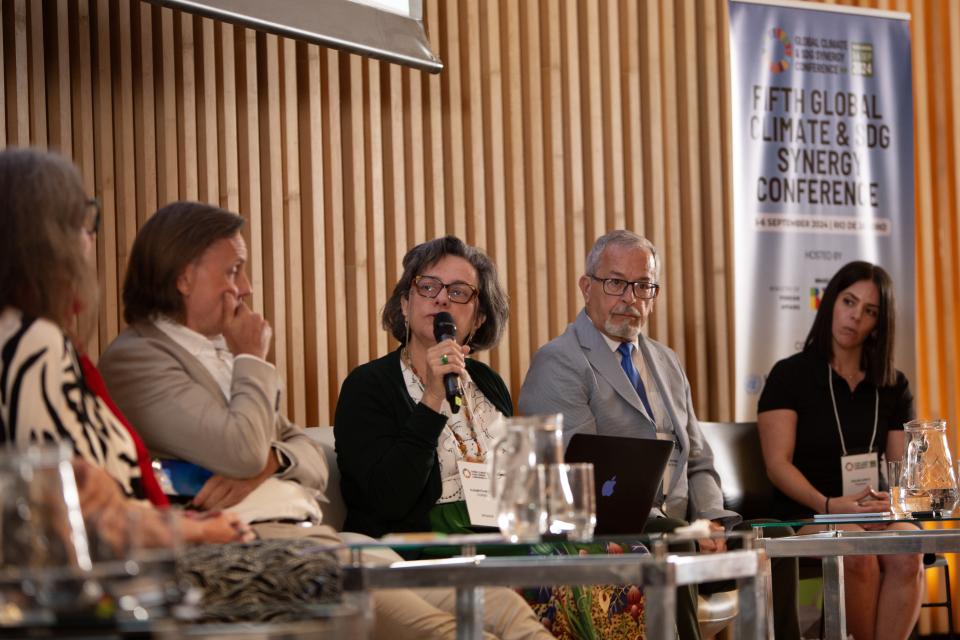UNU-BIOLAC participated at the "Fifth Global Conference on Climate and SDG Synergy Building a Just World and a Sustainable Planet," which was co-convened by UNDESA and UNFCCC and hosted by the Government of Brazil.
This high-level meeting, which sought to turn the ongoing discourse on climate change into results, brought forward two keywords to concentrate on: Urgency and synergies.
With only 17% of Sustainable Development Goals on track, we are already at 1.1 degrees of warming above pre-industrial levels, with current projections demonstrating increased global warming of 3.2 degrees by 2100, which will result in devastating impacts on the planet and human systems. However, the SDGs and the 1.5-degree limit are still within reach if they are addressed together, and we must act now.
The way forward: Synergies. Coordinated action and multi-stakeholder partnerships are not just key, they are essential to advancing. While this is not a new demand, the conference concentrated on solutions for the observed obstacles, namely, what prevents political commitment to these synergies, for example, bridging financial divides, unequitable transitions and slow adoption of bioeconomies. The need for collective efforts is paramount.

Dr. Gustavo Fermin, UNU-BIOLAC's Programme Head, participated in the Nature Regeneration and Bioeconomy round table, where he advocated for three necessary elements that can potentiate Biotechnology as a source of technical solutions for a fundamental aspect discussed during the conference: sectorial adaptation, which is the capacity of economic and public sectors to respond to climate threats and adapt to new realities.
These three elements are:
1) Free and equitable access to relevant information, particularly scientific output.
2) Easier access to genetic resources for research.
3) An openness to "Frugal innovation," as many solutions from these genetic resources don't always need high technological investments.
In short, Dr. Fermin advocated for a more substantial relevance of biology and biologists in the search for climate stability, in line with the conference's demand for incorporating every stakeholder's voice, particularly those more affected by climate change, as a key to moving forward.
Finally, the conference also identified two critical points of attention: That there is sufficient evidence for the co-benefits of climate synergies being far more significant than the tradeoffs for the stakeholders and that a transition to a low-carbon economy must have a financial aid strategy for people who depend on jobs related to high carbon intensity, to get them to incorporate into the expected synergistic action.

